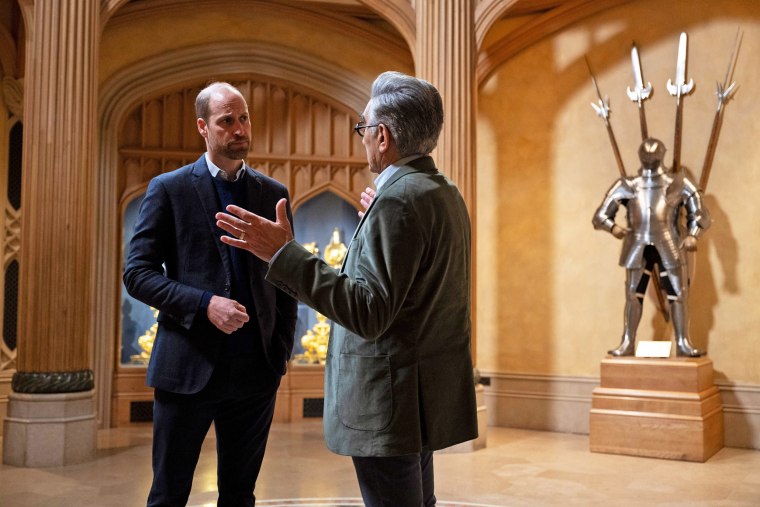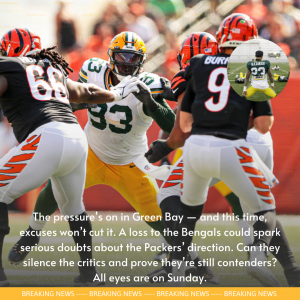
Prince William Delivers Bold Vision in Rare Interview: “Change Is on My Agenda”
In a television moment that many are already calling a turning point in royal communications, Prince William granted one of the most candid and pointed interviews of his public life — and used it to hint at a monarchy in evolution under his future reign.
The interview, conducted on Apple TV+’s The Reluctant Traveler with Eugene Levy, was far more than a casual cameo. From Windsor Castle to local haunts, William opened a window into his mind, his struggles, and his intentions for the Crown — and sent a clear message: the monarchy under King William won’t be bound by every tradition, and he won’t shrink from making necessary changes.
A Calculated Stage for a Personal Reveal
At first glance, William’s participation in the show might have looked like a light-hearted publicity move. But those behind the scenes say it was anything but casual. Choosing Eugene Levy — a nontraditional interlocutor who isn’t a royal reporter — gave William a rare chance to speak in a less adversarial environment. The result: an interview that feels both fresh and deeply revealing.
In several moments, William directly confronted what he sees as a tension at the heart of the modern monarchy: the tug between tradition and relevance.
“Other things overwhelm me, but not history, no, because I think if you’re not careful, history can be a real weight and an anchor around you.”
“If you’re too intrinsically attached to the history, you can’t possibly have any flexibility … you worry the chess pieces move too much and therefore no change will happen.”
“I think it’s safe to say that change is on my agenda — change for good. And I embrace that and I enjoy that change — I don’t fear it.”
These statements, at once personal and purposeful, send a strong signal: William is positioning himself as a monarch who respects the past — but is not in thrall to it.

William repeatedly walked a careful line. He affirmed the significance of tradition: “Tradition will stay and tradition has a huge part of all this.” But he also challenged it: “Are we still doing and having the most impact we could be having?”
In other parts of the interview, the prince acknowledged 2024 as one of the toughest years of his life, balancing family health challenges — including cancer diagnoses within the royal family — with public duty and the glare of media scrutiny. Reuters+1
He also spoke of protecting his children from the kind of invasive press that shaped his childhood. Reuters+1
The overall message was unmistakable: William doesn’t see himself as simply inheriting a museum of monarchy. He wants to steer the institution, to question parts of it, and to shape it so that his reign is both principled and adaptive.
A Master Coup — Or Calculated Communications?
Some analysts see this as a master stroke of modern royal PR — a deliberate reinvention rather than a slip into vulnerable authenticity. By choosing a friendly platform, controlling the narrative, and delivering carefully measured lines, William managed to provoke curiosity, admiration, and debate without triggering a full royal scandal.
As one article put it, “You didn’t get the formality you expect from monarchy … there’s normalcy to it that surprised me.” Vulture
Others argue this interview may raise expectations he can’t easily fulfill. What counts as “necessary change”? How far will he go? And how will institutional resistance respond?
What This Means for the Monarchy—and King William’s Legacy

If William follows through on his words, we may see shifts like:
-
Revisiting or retiring certain traditions that no longer resonate
-
Rebalancing public exposure and privacy for royal family members
-
Modernizing roles and responsibilities while maintaining symbolic continuity
-
Adapting the monarchy’s public-facing mission to emphasize relevance, service, and flexibility
But the stakes are high. The monarchy is an institution bound by history, vested interests, and public expectation. If William pushes too far, he risks alienating traditionalists; if he moves too little, critics may call his reign indistinct.
Still, yesterday’s interview will be remembered not for what it revealed — though it revealed plenty — but for what it represented: a future monarch willing to acknowledge his burdens, weigh them, and declare that his reign will not be defined by the past alone.
As one line echoed repeatedly: “Change for good.”
Let the chessboard be set — the pieces are moving.





